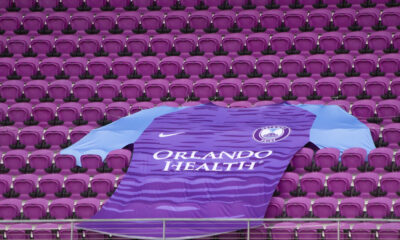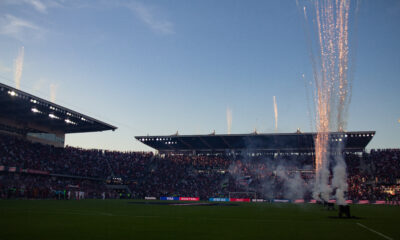Orlando City
Orlando City’s Rookie Class of 2019 Showed Tremendous Potential for the Future
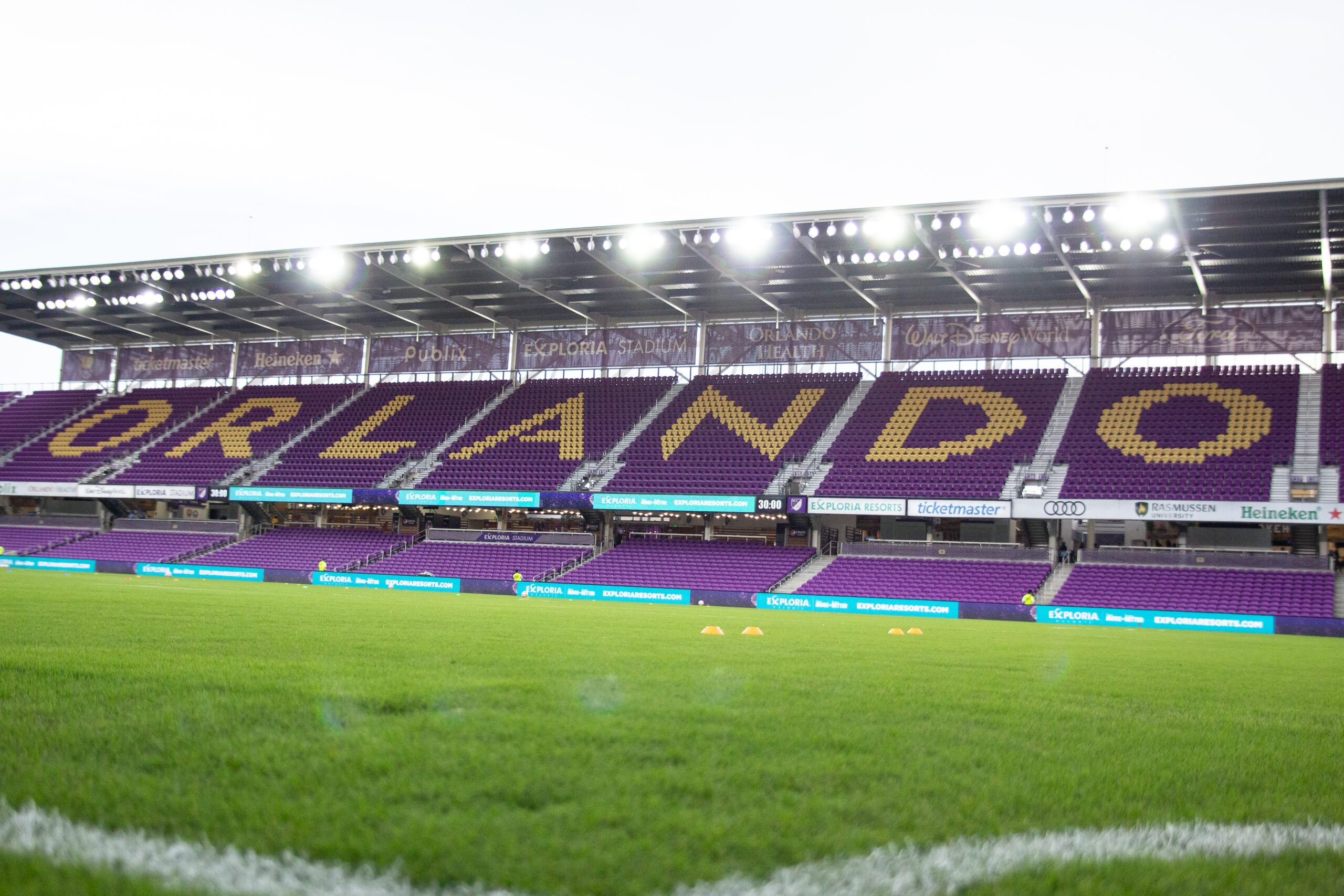
Orlando City came into the 2019 season with three rookies on the roster — Homegrown Player Benji Michel and MLS SuperDraft selections Santiago Patiño and Kamal Miller. All three players showed promise in 2019, with Miller earning starting minutes on the Canadian Men’s National Team due to his versatility and athleticism at both center back and left back and Patiño getting a call-up from the Colombian U-23s. Meanwhile, Michel developed nicely over the course of the season and put up numbers comparable to MLS Rookie of the Year Andrei Shinyashiki of the Colorado Rapids.
Shinyashiki is a player that — like Patiño — stood out at the MLS Player Combine prior to the draft. At only 5-foot-9, the Rapids forward isn’t as physically impressive as the broad-chested, 6-foot-1 Patiño, but his play stood out at Exploria Stadium in the combine sessions I saw. The league’s top rookie has Orlando-area ties, having played at Montverde Academy, which he attended alongside Michel. Our Scott Carnevale wrote about Shinyashiki’s impressive run at the MLS Combine. Patiño, an Orlando-born Florida International product, who fell just a few months shy of qualifying for Homegrown Player status for Orlando City, also impressed at the event.
Orlando selected Patiño with the No. 3 overall pick and Shinyashiki fell to the Rapids at No. 5. At the time, Luiz Muzzi and James O’Connor both spoke about how they considered Patiño an Orlando Homegrown and how the club wanted to show its commitment to its academy players, past and present. Patiño was more than a draft selection — he was also a message to the area’s youth players that they are welcome and wanted. It was a necessary step by a club that had mismanaged its youth setup for years and was leaking potential prospects to the college game.
It’s easy now to point to Shinyashiki’s league award and say the Lions made the wrong choice on draft day, but it is also perhaps premature to do so. The Brazil native required Colorado to spend an international slot on him, which may have played a role in Orlando selecting Patiño, a guy physically built more like a traditional striker.
Shinyashiki benefited in 2019 from a less crowded group of attacking players ahead of him than Patiño, although it’s also possible he was simply more ready to step into the rotation as well. As a result, Shinyashiki won the league’s top rookie award after a season in which he played in 31 matches (18 starts), totaling 1,670 minutes. The Brazilian scored seven goals and added three assists.
Meanwhile, Orlando’s rookies also performed well when called upon, but struggled for minutes behind a three-man forward line that included Nani, Dom Dwyer, a resurgent Tesho Akindele, and Chris Mueller. Breaking in among that group was difficult for Patiño and Michel — even with Dwyer’s scoring slump in full swing this summer. Michel eventually managed to do so late in the season.
Patiño saw the field only 11 times and started only three matches, tallying 322 minutes. But he made good use of that time, scoring two goals and adding an assist. Michel got on the pitch 17 times, starting nine games and playing 943 minutes. In that time, he scored five goals and added an assist.
If you break these numbers down, Patiño actually has the fewest average minutes per goal, as the rookie scored every 161 minutes on the pitch (yes, in an admittedly very small sample size). Michel, who has a larger sample size, scored a goal every 188.6 minutes he was on the field. Shinyashiki scored once for every 238.6 minutes he played. If you factor in assists, Patiño still leads the trio. He was involved in a goal (either scoring or assisting on one) every 107 minutes he played. Michel either scored a goal or assisted on one every 157 minutes. Shinyashiki did so every 167 minutes.
I’m not suggesting that Michel or Patiño are necessarily better or more successful than the MLS Rookie of the Year or that they’re as far along in their development. These numbers suggest that all three players were effective but it should not be overlooked that Shinyashiki had more opportunity. Obviously this gave him an advantage in driving his totals higher but he also got himself on the pitch. Whether that is because he had a less crowded field of attackers to navigate in Colorado than Patiño and Michel had in Orlando — Nicolas Mezquida seemed to be relegated largely to a sub role in Colorado and Jonathan Lewis only played in 16 games, leaving Kei Kamara and Diego Rubio as the team’s only other consistent attacking choices — or if he simply showed his coach that he was more ready, I couldn’t say, as I’m not at training every day. The Rapids’ reward for playing their kids was deserved.
But if Michel and Patiño can build on their 2019 seasons, and Miller can improve upon a rookie year in which he played 16 games (14 starts), this could be Orlando’s best draft class to date, regardless of a lack of league awards among the three. It has some way to go to beat the Cyle Larin-Earl Edwards Jr. draft of 2015, but the Lions’ Class of 2019 is off to a good start.
Lion Links
Lion Links: 7/2/25
Big names leave Toronto FC, hot conditions in Club World Cup match, FIFPRO makes ACL recommendations, and more.
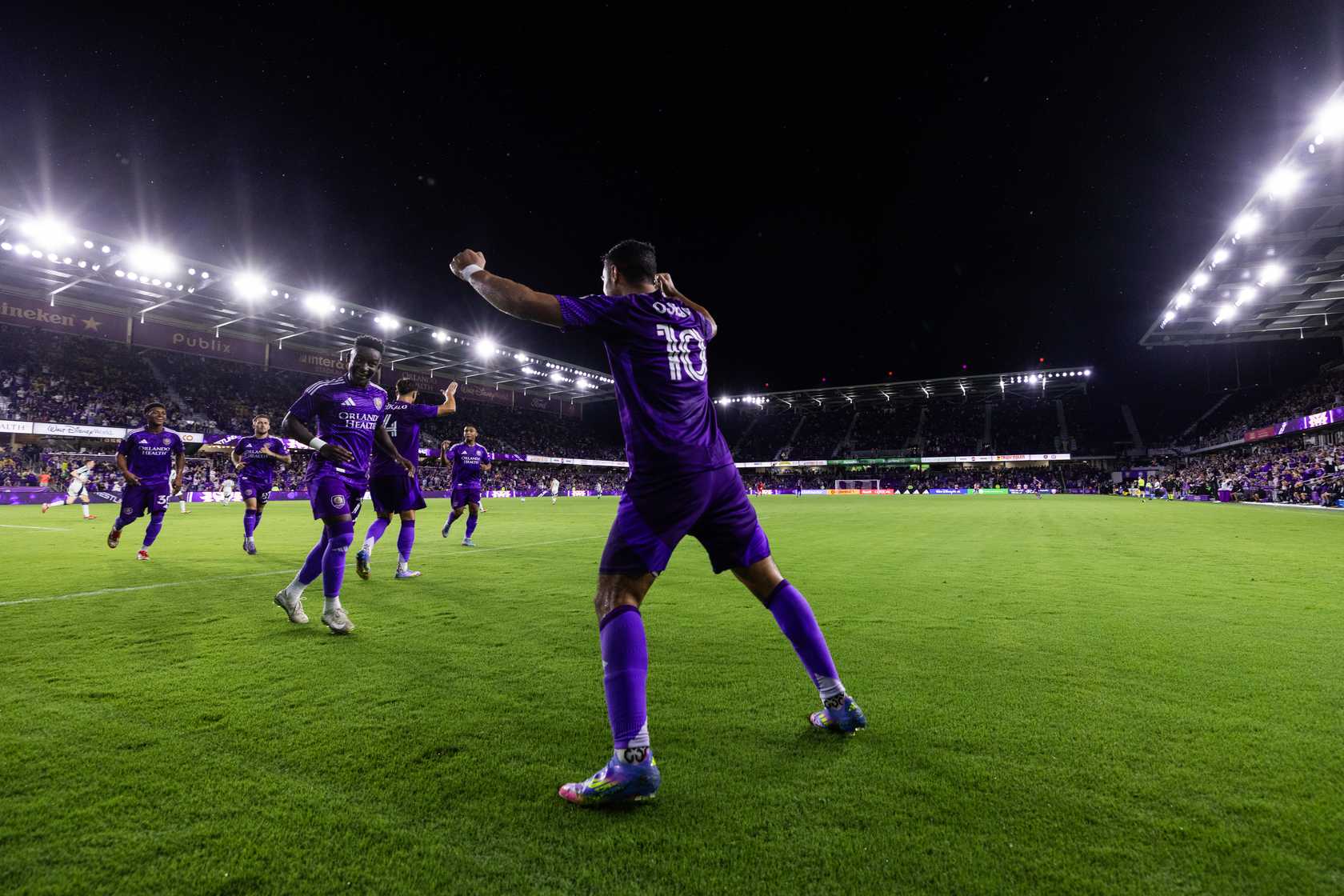
Happy Wednesday, everyone. It already feels like it’s been a long week, as I just got home from being out of town traveling up and down the East Coast for the last few days. The soccer world hasn’t stopped in my absence though, and as usual we have a lot to cover today. Let’s wish a happy birthday to OCB defender Tahir Reid-Brown, and jump into today’s links!
Italians Leave Toronto FC
It’s the end of an era at Toronto FC, as the club has parted ways with both Federico Bernardeschi, and Lorenzo Insigne. The Reds used both of their two buyouts of guaranteed contracts this season in order to get the transactions done, so the club was pretty keen to get them out the door. It’s hard to blame the Reds, as Insigne was the second-highest paid player in the league while Bernardeschi was the fifth highest. They didn’t have much to show for it though, as Bernardeschi had 26 goals and 22 assists in 99 games across all competitions, while Insigne had 19 goals and 17 assists in 76 matches. TFC never made the playoffs while the duo was on the team, and the decision to turn the page is an understandable one.
Difficult Conditions in Juventus vs. Real Madrid
The Club World Cup Round of 16 concluded on Tuesday, with Real Madrid knocking off Juventus 1-0 in afternoon match. Kylian Mbappe made his tournament debut for Madrid as a substitute, but it was Gonzalo Garcia’s 54th-minute goal that made the difference in the game. Juve boss Igor Tudor highlighted the difficult conditions in Miami, saying in his postgame press conference that 10 different players asked to come off the field during the game. Tudor didn’t outright blame the loss on the high heat and humidity during the 3 p.m. kickoff at Hard Rock Stadium, but noted that they were among several factors that made the game a very difficult one for his side.
FIFPRO Makes Recommendations to Curb ACL Tears
Amid a rash of ACL injuries to women’s soccer players, FIFPRO has made some recommendations to cut down on the rate at which they occur. Rather than focusing on things that can’t be controlled, the federation has suggested modifying the calendar, number of games, and the playing surfaces. FIFPRO member Alex Culvin is calling for minimum standards in the women’s game relating to pitch conditions and access to physiotherapists. More research around risk factors is also necessary, as is implementing preventative exercises at the youth levels of the game.
Transfer Rumor Roundup
Summer transfer business is in full swing, so let’s catch up on some of the hot rumors currently flying around. First up, Arsenal is said to be in the final stages of signing Viktor Gyokeres to a five-year deal. Staying in the Premier League, Manchester United is reportedly interested in signing midfielder Fabian Ruiz from Paris Saint-Germain. Juventus reportedly is close to signing Jonathan David after his contract with Lille expired. Finally, Bayern Munich is reportedly preparing a formal offer for Liverpool for Colombian winger Luis Diaz.
Free Kicks
- Orlando City is down a spot to no. 9 in the MLS.com power rankings.
- Landon Donovan says he has insider information that there are building tensions between Jesse Marsch and both players and officials within the Canadian Soccer Federation.
- The New York Cosmos will reportedly be back as a USL League One team that is set to begin play in the 2026 season.
- Haslam Sports Group has sold a 10% stake in the Columbus Crew.
- A drone not belonging to the United States Men’s National Team was spotted filming training on Tuesday.
That’s all I have for you this morning. Vamos Orlando!
Lion Links
Lion Links: 7/1/25
Pride signings, OCB draws, both U.S. national teams in action Wednesday, and more.
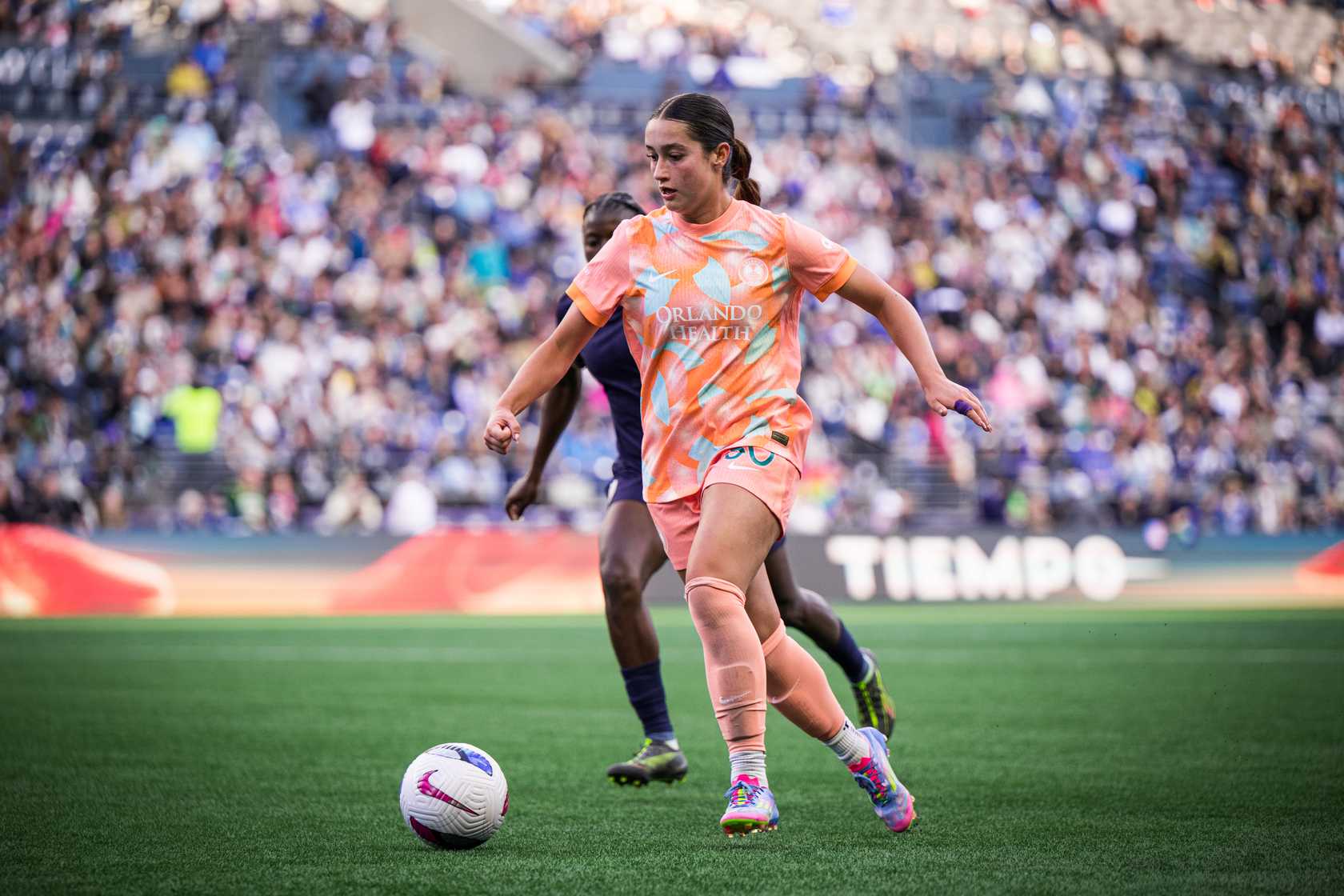
Welcome to July, Mane Landers. If you’re like me, you balanced the excitement and dread of the USMNT advancing on penalty kicks the other night. It was one thing watching Guatemala take out Canada but a whole other level of heart palpitating stress while watching the U.S. avoid a similar fate. There’s no time to relax with plenty of soccer to watch as we head towards Independence Day. Before we get to the links, please join us in wishing Orlando Pride/USWNT defender Emily Sams and OCB defender Clovis Archange each a happy birthday.
Orlando Pride Signings
The Orlando Pride announced a pair of transactions Monday. Midfielder Viviana Villacorta and the club have agreed to exercise the midfielder’s mutual option for the 2026 season. Villacorta was the No. 9 overall pick in the 2021 NWSL Draft. The Pride also signed midfielder Ally Lemos to a new contract through the 2027 season with a mutual option for 2028. The Pride selected Lemos with the No. 9 overall pick of the 2024 NWSL Draft. Orlando continues to lock down current players ahead of time. Now, we wait to see if any new players will be added.
OCB Earns a Point on the Road
Orlando City B played Philadelphia Union II to a 1-1 draw in a Monday afternoon match. Unfortunately, the Young Lions lost the end-of-regulation shootout 4-2 and did not get the additional point. Gustavo Caraballo assisted Jackson Platts on the early goal for OCB. Philadelphia equalized early in the second half. Carlos Mercado was the difference maker in the match, recording a career-high 12 saves.
USMNT’s Gold Cup Run Continues vs. Guatemala
The USMNT will face Guatemala Wednesday night in a 2025 Gold Cup semifinal match. The U.S. advanced past Costa Rica on penalties thanks to a stellar performance from goalkeeper Matt Freese. Guatemala stunned Canada with a second-half equalizer and advanced on penalty kicks. Guatemala has been the overachieving underdog of the competition so far. This will be the USMNT’s 17th Gold Cup semifinal appearance.
USWNT Hosts Canada
The USWNT will host Canada in a third friendly of this international window Wednesday at Washington, D.C.’s Audi Field. The U.S. is coming off two 4-0 victories over the Republic of Ireland. Canada should prove a tougher opponent for Emma Hayes’ squad. There is a possibility that the match will feature two Orlando Pride players — Emily Sams for the U.S. and Zara Chavoshi for Canada. Kerry Abello has returned to her club team after picking up a knock.
Free Kicks
- The Orlando Pride’s Anna Moorhouse is one of many NWSL players that may feature in the 2025 UEFA Women’s Euro competition.
- Kristie Mewis is leaving West Ham United after only four appearances in 18 months. He time was limited due to injuries and then pregnancy.
- Global players’ union FIFPRO has concerns about the potential intense heat at the FIFA Club World Cup next year.
- Botafogo fired coach Renato Paiva after Brazilian rival Pal defeated Botafogo in the Club World Cup. Paiva was only in the job for four months.
- USMNT midfielder Malik Tillman may be headed to Bayer Leverkusen in the Bundesliga.
- Former Orlando Pride midfielder Erika Tymrak has retired from professional soccer.
That will do it for today. Check back as we get you ready for Orlando City’s match against Charlotte FC this weekend. Vamos Orlando!
Orlando City
Orlando City Striker Ramiro Enrique Hindered By Inconsistency
Ramiro Enrique’s inconsistent play raises the question if he can be the go-to striker Orlando City desperately needs.
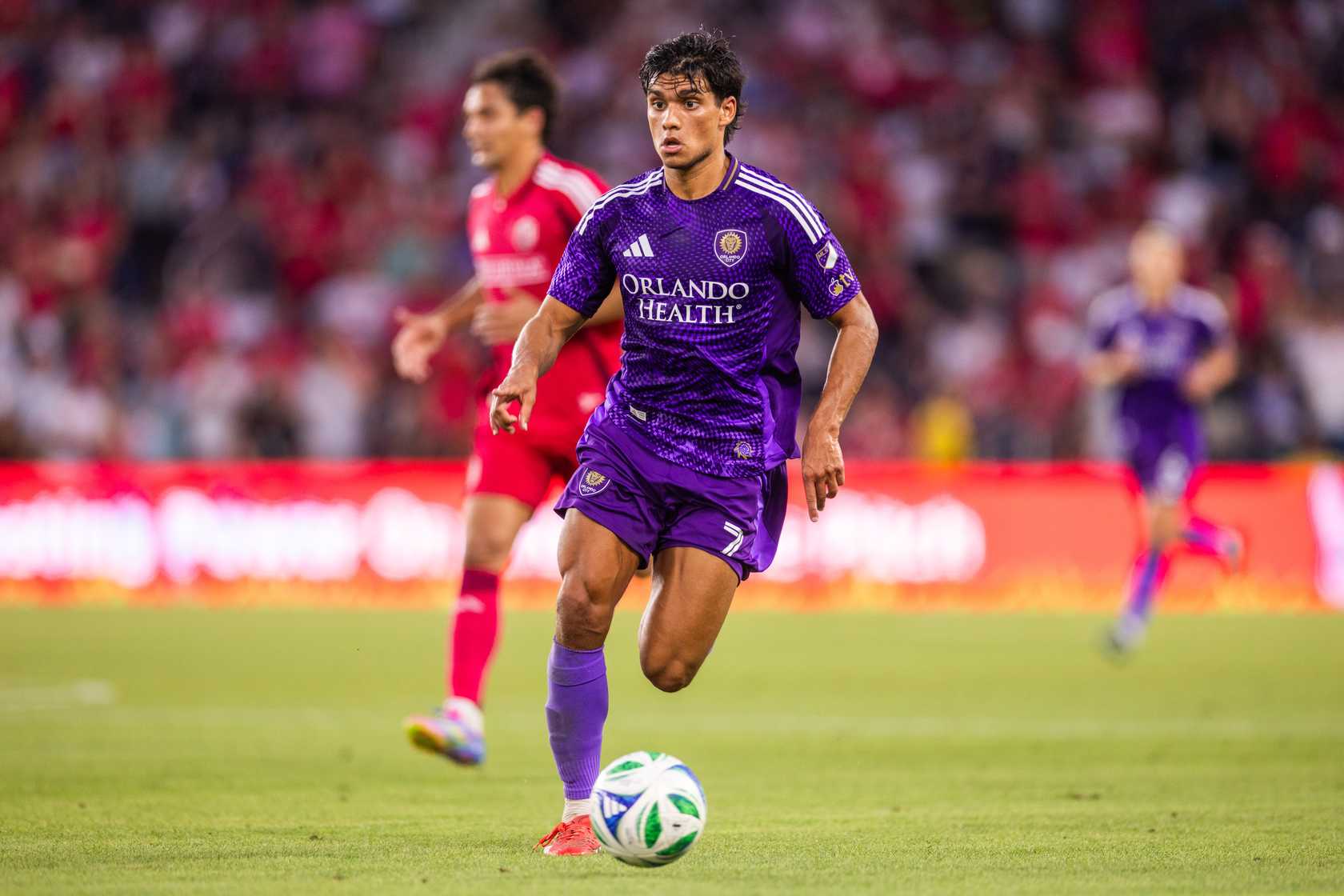
Orlando City’s strike force has been inconsistent this season, to say the least. At times, the players up top have looked like they can score at will, but at other times, they struggle on chances they should finish. Nobody displays that inconsistency better than Ramiro Enrique.
Joining the Lions in 2023, Enrique has primarily served in a backup role for Ercan Kara, Duncan McGuire, and Luis Muriel. The young Argentine has had the occasional start, but ultimately ends up back on the bench, entering later in games.
Orlando City acquired Muriel prior to the 2024 season when it appeared McGuire was on his way to Blackburn Rovers. However, the English side’s struggle with simple paperwork resulted in the Omaha, NE, native returning to Orlando. It left Oscar Pareja with some decisions to make.
The Lions often employ a 4-4-2 formation with a single striker and Muriel playing underneath. As a result, the three forwards all saw plenty of action in 2024. Enrique started 12 games, Muriel 14, and McGuire was listed 18 times in the starting lineup. However, Enrique’s strong form near the end of the season saw him start 11 of the final 12 regular-season games and all five playoff contests.
Aiding Enrique’s playing time were injuries to McGuire. The 6-foot-1 striker suffered a shoulder injury on Nov. 9 in an MLS Cup playoff game against Charlotte FC, guaranteeing a starting spot for Enrique. As McGuire continued to work towards his return at the start of the year, Enrique took his place.
At times, it looks like Enrique is more than a substitute for Muriel or McGuire and can be the go-to scorer the Lions have struggled to find since Daryl Dike. But his inconsistency eventually returns, making it hard for Pareja to depend on the young attacker. That issue has been most noticeable during the two most recent games.
Putting shots on frame has been a struggle for the Lions this year, but it wasn’t for Enrique Wednesday night in St. Louis. After the Lions lost back-to-back games against Atlanta United and the Chicago Fire, Enrique was inserted into the starting lineup for Muriel. He took advantage of his opportunity in St. Louis, placing three of his five shots on target. He scored a first-half brace, giving his team a commanding three-goal lead after just 22 minutes.
In the seventh minute, Martin Ojeda sent a strong ball across the box that Enrique ran onto with perfect timing. He didn’t try to do too much, tapping the ball in on the slide. After Marco Pasalic made it 2-0, a bad turnover in the 22nd minute gave the striker a second chance. He was in on goal and made no mistake, slamming the ball past Roman Burki to make it 3-0.
The performance had many wondering if the team had finally found the striker it had been looking for since McGuire went down. But it wasn’t to be as Enrique reverted to his inconsistency with a poor performance in Saturday night’s 2-1 loss to FC Cincinnati.
The striker was unable to put any of his three shots on target, but that’s only part of the story. It’s how he failed to score that was the bigger problem.
In the 51st minute, Pasalic forced Brian Anunga into a turnover just outside the Cincinnati box. Enrique made a run toward the near post and Pasalic found him. The striker should’ve had no problem putting the shot on target, but he hit the ball with his left foot as his right came through, knocking the ball out of play for a goal kick.
He had a chance to redeem himself in second-half stoppage time with the Lions looking for an equalizer. Rafael Santos played a beautiful ball to the near post that only required a slight touch to beat Roman Celentano. However, the striker sent his header well wide, squandering a golden opportunity to claim a point.
These two games show the inconsistency that has plagued Enrique throughout his Orlando City career. He’ll look to be in excellent form and ready to claim the starting striker role, only to follow it up with a poor performance. It’s something that has held the Argentine back since his arrival and continues to do so this year.
Even more troublesome, it leaves Orlando City without a dependable striker. McGuire can’t seem to get over his shoulder problems, and he is currently on the sidelines again while he recovers from surgery on the opposite shoulder to the one he hurt in last year’s playoffs. Muriel and Ojeda often partner each other up top, but both are more comfortable in midfield positions.
Injuries and players in uncomfortable positions provide Enrique with the perfect situation. Consistent scoring would assure Pareja that he can depend on the 24-year-old to produce the goals his team has been searching for. But the striker can’t seem to put it together over the span of multiple games.
He’ll have plenty of opportunities in the near future to win the position he undoubtedly craves. McGuire’s absence due to injury and Muriel’s preference to play underneath means Enrique will likely get more playing time. However, he needs to show more consistency if he wants to hold onto the starting spot long-term.
-
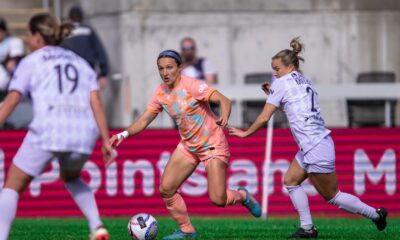
 Orlando Pride2 weeks ago
Orlando Pride2 weeks agoOrlando Pride vs. Racing Louisville FC: Preview, How to Watch, TV Info, Live Stream, Lineups, Match Thread, and More
-
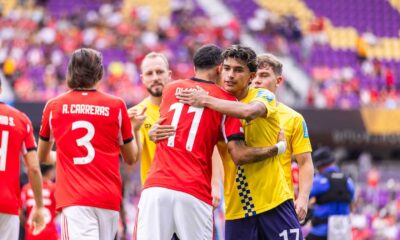
 Local Soccer Events2 weeks ago
Local Soccer Events2 weeks agoSL Benfica vs. Auckland City FC: Final Score 6-0 as Benfica Wears Down New Zealanders
-
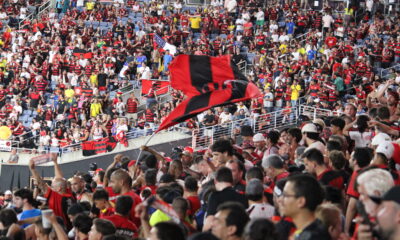
 Local Soccer Events1 week ago
Local Soccer Events1 week agoLAFC vs. Flamengo, 2025 FIFA Club World Cup: Final Score 1-1 as Teams Exchange Late Goals
-
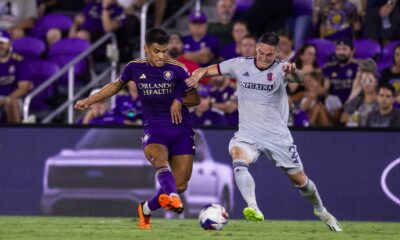
 Orlando City1 week ago
Orlando City1 week agoOrlando City vs. St. Louis City: Preview, How to Watch, TV Info, Live Stream, Lineups, Match Thread, and More
-

 Opinion2 weeks ago
Opinion2 weeks agoOrlando City Has Been Better than Expected Halfway Through the Season
-
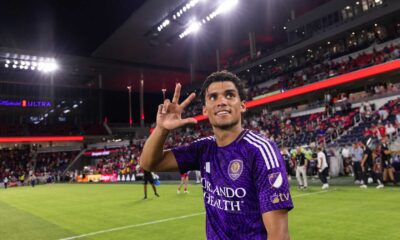
 Orlando City7 days ago
Orlando City7 days agoOrlando City vs. St. Louis City: Five Takeaways
-
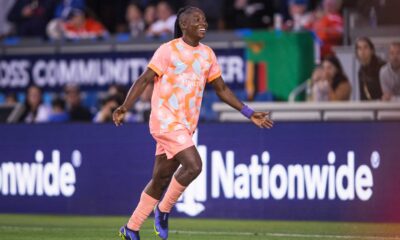
 Podcasts2 weeks ago
Podcasts2 weeks agoSkoPurp Soccer Episode 91: Bay FC Rewind, Racing Louisville Preview, and More
-
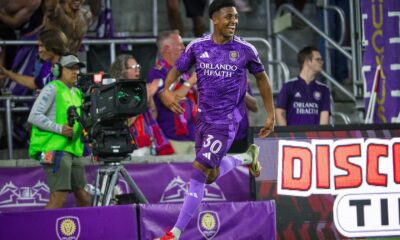
 Orlando City1 week ago
Orlando City1 week agoOrlando City Fullback Alex Freeman Selected to Participate in 2025 MLS All-Star Game


